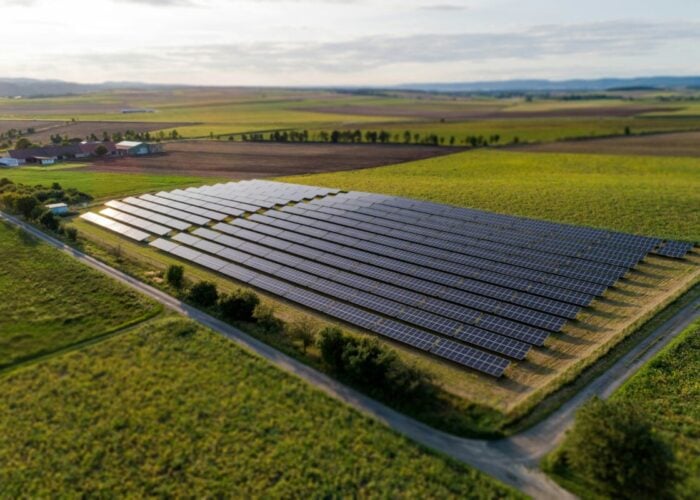Rises in consumer electricity prices, caused in part by a backlog of unbuilt PV projects, could put Japan’s solar industry in serious danger of losing support, a Tokyo-based analyst has warned.
Hiroshi Matuskawa of RTS PV told PV Tech in a phone call yesterday that consumer electricity prices have risen by between 10% and 20% across Japan since the establishment of the feed-in tariff (FiT) in mid-2012.
Try Premium for just $1
- Full premium access for the first month at only $1
- Converts to an annual rate after 30 days unless cancelled
- Cancel anytime during the trial period
Premium Benefits
- Expert industry analysis and interviews
- Digital access to PV Tech Power journal
- Exclusive event discounts
Or get the full Premium subscription right away
Or continue reading this article for free
Matuskawa said the possibility of a public backlash to the price hikes had spilled over into politics and was “extremely dangerous” for solar, which until now has experienced high approval levels in Japan.
Matsukawa stressed that the will of the Japanese public is still strongly anti-nuclear and pro-renewable energy. He said however that electricity price rises have proved extremely unpopular with Japanese consumers.
The price rises have to some extent been attributed to the cost of struggling to accommodate high levels of PV penetration on a set of ageing grids which are operated independently of one another by 10 different utility companies. Despite the backlog, the government has continued approving projects at some pace.
“Similarly to the situation in Germany, this could have a ‘rebound’ effect,” Matsukawa said. “Public opinion is starting to make a 180 degree reversal, and this could be extremely dangerous for the industry.”
In October last year, PV Tech reported exclusively that the Japanese government was investigating the status of 748 large-scale, FiT-approved PV projects that had applied for the necessary equipment accreditation and land but had yet to be built. Depending on status, the projects’ developers were given deadlines of March or August this year to obtain the necessary paperwork to go ahead with construction.
As the story unfolded, earlier this month the Japanese Ministry of Economy, Trade and Industry (METI) ruled that 144 projects would be cancelled, having missed the March deadline. A further 288 were given until August. Matsukawa explained the situation since in brief.
“By the end of March this year, a huge amount of projects had been given equipment accreditation, which has caused an urgent problem within Japan. Ultimately, by the end of March 2014, equipment accreditation for a lot of PV had been approved. This is a combination of projects accredited at 2012 and 2013 FiT rates. There is concern that if all of that PV is connected, the surcharge levied on consumers as part of their electricity bill could continue to rise very sharply.”
Matsukawa noted that by the end of March, close to 65GW capacity of PV projects had been given equipment accreditation, further contributing to the backlog. Equipment accreditation, requiring developers to use materials and machinery from a list of approved suppliers, is only part of the process of obtaining FiT approval in Japan, with the obtaining of land and interconnection documents also necessary. Nonetheless, Matsukawa pointed out that the government cannot refuse legitimate equipment accreditation requests. Matsukawa said it would take time to change the system of approval to incorporate an 'upper limit', but also said the high figure could still have an effect on public opinion.
When asked what could be done to remedy the situation, Matsukawa explained that the Japanese government approach appears to be to revoke FiT approval for a large number of projects. However, he said, this could prove difficult.
“From the government side of things, they can only cancel the shakiest applications, where something is obviously wrong with a plan, with any kind of ease. If they take approval away from some of these projects without doing so legally, they would lose in court. It’s very difficult in Japan to take away something that has been legally approved in the first place.”
According to Matsukawa, the government has so far only been able to cancel FiTs for an unnumbered handful of the 144 projects that missed the March deadline due to conspicuous reasons such as unsuitable land being selected for locating the PV plants.
“It is not an easy thing to take approval away. The government is currently troubling themselves to fix this problem, with great urgency. That’s the situation at present. The August deadline projects – it’s looking as if it’ll be difficult to cancel some of those legitimately; after all, it has proved very difficult to do the same for the projects that were meant to be cancelled if they didn’t have accreditation by the March deadline.”
Matsukawa reiterated a view given in May to PV Tech that the next three to four years would still no doubt see a large amount of PV deployed in Japan, but that as the planned end of the FiT approached, things could become more precarious. He said the hope was that the FiT regime would continue as planned and that Japan’s government would continue degressing the tariff rate gradually each year, in line with falling costs so that the post-FiT era could begin with a healthy Japanese solar industry.
Matsukawa confirmed that rumours are circulating in Japan that the government is considering cutting the FiT earlier than the annual expected degression of around 10% at the end of March 2015, when Japan’s current financial year ends.
He said that although this was a possibility, the matter of the PV backlog is having a worse effect on consumer electricity prices than this rumoured uncertainty and is more pressing for the industry in the immediate term.






